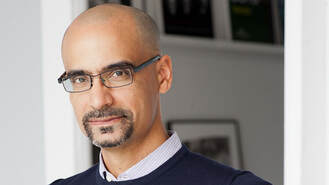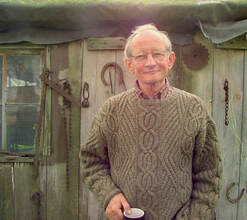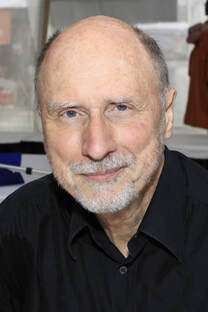Narrative linguistics is one of many tools in my coaching tool box and one that I developed from my passion with language that is designed to help people explore their unconscious narratives and rewrite the future they most need to live into in order to achieve a more fulfilling life.
Which characters are writing your story?
Melville never asked, “What’s Ahab’s problem?” Cervantes never wondered about Don Quixote’s proclivity for windmill jousting. And Martin Handford could always find Waldo.
And yet, you ask, “What’s the problem with my boss?” You wonder why your spouse keeps repeating that pet peeve despite your protests. And you do not know where you are going in life.
The common thread here is stories. Whether consciously or – more often – unconsciously, we tell ourselves stories that both reflect the way we see the world and simultaneously guide our journey through it. They are important evolutionary tools that help us to make sense of our experiences. However, we casually and commonly see ourselves as the main characters of our stories when, in fact, we are also – and more importantly – the authors of them.
The problem is not with the antagonist (your boss), the sidekick (your spouse), or the plotline (your life); the problem is bad writing.
Think of this aspect of coaching as a writer’s workshop for your stories.
My perspective: You are like a character in a story attempting to finally take control of the authorship and write the rest of the book yourself. This coaching is the workshop where we explore the story thus far; the part you play in it; the dynamic between characters (protagonists and antagonists alike); and unveil previously undiscovered motives, secondary character traits, and parallel plotlines. With a better grasp of the story and your role in it, we can begin to rewrite both. While we cannot change the past, we can change how it occurs to us. And with greater clarity and intent, we can write a better future for you to live into. I consider myself an executive coach with the advantage to be able to offer a narrative linguistic approach as an additional resource.
Everyone has a story.
It is the honor of my life when people share their stories with me and allow me to help them navigate their lives with purpose and clarity. Your writing is not a matter of quality; it’s an issue of intentionality. If you can be open and honest, you can be coached and discover how vulnerability is actually a strength.
Melville never asked, “What’s Ahab’s problem?” Cervantes never wondered about Don Quixote’s proclivity for windmill jousting. And Martin Handford could always find Waldo.
And yet, you ask, “What’s the problem with my boss?” You wonder why your spouse keeps repeating that pet peeve despite your protests. And you do not know where you are going in life.
The common thread here is stories. Whether consciously or – more often – unconsciously, we tell ourselves stories that both reflect the way we see the world and simultaneously guide our journey through it. They are important evolutionary tools that help us to make sense of our experiences. However, we casually and commonly see ourselves as the main characters of our stories when, in fact, we are also – and more importantly – the authors of them.
The problem is not with the antagonist (your boss), the sidekick (your spouse), or the plotline (your life); the problem is bad writing.
Think of this aspect of coaching as a writer’s workshop for your stories.
My perspective: You are like a character in a story attempting to finally take control of the authorship and write the rest of the book yourself. This coaching is the workshop where we explore the story thus far; the part you play in it; the dynamic between characters (protagonists and antagonists alike); and unveil previously undiscovered motives, secondary character traits, and parallel plotlines. With a better grasp of the story and your role in it, we can begin to rewrite both. While we cannot change the past, we can change how it occurs to us. And with greater clarity and intent, we can write a better future for you to live into. I consider myself an executive coach with the advantage to be able to offer a narrative linguistic approach as an additional resource.
Everyone has a story.
It is the honor of my life when people share their stories with me and allow me to help them navigate their lives with purpose and clarity. Your writing is not a matter of quality; it’s an issue of intentionality. If you can be open and honest, you can be coached and discover how vulnerability is actually a strength.
One Question
I had the honor of asking a few incredible and influential writers their thoughts on the relationship between narrative and life. Below, I am honored to share their responses.
How can the art of storytelling (i.e. use of metaphor, diction, character development, plot points, etc.) impact our own daily lives through our perceptions and behaviors regarding the unconscious narratives we tell ourselves?
How can the art of storytelling (i.e. use of metaphor, diction, character development, plot points, etc.) impact our own daily lives through our perceptions and behaviors regarding the unconscious narratives we tell ourselves?
 Junot Diaz
Junot Diaz
"To understand storytelling or narrative is to understand life. If you are not fluent in narrative, other people’s stories will control you utterly. If you speak narrative you will have a say in your own life and in the world and what’s life for if not to practice agency?"
Junot Diaz is a Pulitzer Prize-winning author, professor of creative writing at MIT, and the fiction editor of the Boston Review.
Junot Diaz is a Pulitzer Prize-winning author, professor of creative writing at MIT, and the fiction editor of the Boston Review.
 Lois Lowry
Lois Lowry
"I guess it boils down to the subjectivity of our personal narratives. We make them what we want them to be. We create our own selves, as characters…generally as the heroes of our stories. A piece of fiction always boils down to the choices that the main character makes. So, of course, do our lives."
Lois Lowry is an American author of acclaimed novels including The Giver.
Lois Lowry is an American author of acclaimed novels including The Giver.
 Ted Kooser
Ted Kooser
"I think one answer to your question is, does anything other than story do that for us? It's possible to posit that all our behaviors can be traced to stories told us over our lives. The presidential election was voted by people who were voting because of one story or another. Thus the importance of campaign donors who pay to get stories out in front of the public."
Ted Kooser is a former U.S. Poet Laureate and Pulitzer Prize recipient.
Ted Kooser is a former U.S. Poet Laureate and Pulitzer Prize recipient.
 Dean Pitchford
Dean Pitchford
"Language is power.
Let me repeat that: LANGUAGE IS POWER.
The language we use when speaking to ourselves has the power - and I’m not talking metaphorically here, but actually — it has the power to shape our lives.
And that language doesn’t run through our minds as isolated words or long sentences. That language is part of a narrative … a story … that we are telling ourselves from birth to death. It’s our way of making sense of the millions of bits of input that we receive every day, our way of organizing all this stuff with which we’re bombarded daily. And we have the opportunity to shape it into the story that we want to live at the center of.
…
To sum it all up, though, here’s my gentle advice: Every second of every minute of every day of your life, tell yourself the story that you want to live."
Dean Pitchford is an American songwriter, screenwriter, and director who has earned an Oscar and three nominations, a Golden Globe Award and two nominations, eight Grammy Award nominations, and two Tony Award nominations.
Let me repeat that: LANGUAGE IS POWER.
The language we use when speaking to ourselves has the power - and I’m not talking metaphorically here, but actually — it has the power to shape our lives.
And that language doesn’t run through our minds as isolated words or long sentences. That language is part of a narrative … a story … that we are telling ourselves from birth to death. It’s our way of making sense of the millions of bits of input that we receive every day, our way of organizing all this stuff with which we’re bombarded daily. And we have the opportunity to shape it into the story that we want to live at the center of.
…
To sum it all up, though, here’s my gentle advice: Every second of every minute of every day of your life, tell yourself the story that you want to live."
Dean Pitchford is an American songwriter, screenwriter, and director who has earned an Oscar and three nominations, a Golden Globe Award and two nominations, eight Grammy Award nominations, and two Tony Award nominations.
 Robert Olen Butler
Robert Olen Butler
"I would suggest that the elements you list as descriptive of the 'art' of storytelling are, instead, descriptive of the 'craft' of storytelling. You’re right, though. The art of storytelling does indeed impact our perceptions and behaviors. But that’s because the literary art object is a focused recreation of the universal experience of living in our bodies, moment to moment, through our senses, as we yearn to answer that enduring and elusive question: Who am I?
Any response this short to a question as interesting and complex as the one you're asking is sure to raise more questions than it answers. But I daresay that's part of the point!"
Robert Olen Butler is an acclaimed author and recipient of the Pulitzer Prize for fiction.
Any response this short to a question as interesting and complex as the one you're asking is sure to raise more questions than it answers. But I daresay that's part of the point!"
Robert Olen Butler is an acclaimed author and recipient of the Pulitzer Prize for fiction.
